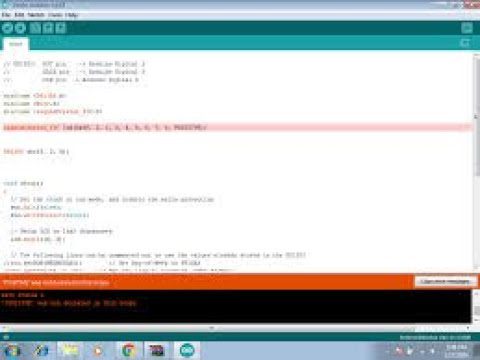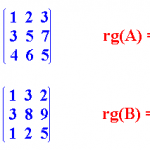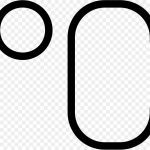Was not declared in this scope arduino
arduino in tinkercad #5: serial monitor part 1
All variables must be declared before use. Declarations must appear at the beginning of each function or block of statements. When declaring a variable you must first indicate the type of variable and then its name, optionally you can give it a value, which is called initializing the variable.
A variable can be declared in a series of places in the program and depending on the place where the declaration is made, this will determine in which parts of the program it can be used, this is called the scope of the variable.
C and C++ are said to be statically typed languages, that is to say, the typing check is performed during compilation, and not during execution, therefore we cannot change the type of a variable at runtime. Other languages, generally interpreted, are dynamically typed and the same variable can take values of different types at different times, such as PHP or Python.
A variable can be declared at the start of the program before the setup() configuration part, locally within functions, and sometimes within a block, such as for if.. for… loops, etc. Depending on where the variable is declared, the scope of application, or the ability of certain parts of a program to make use of it, will be determined.
was not declared in this scope- arduino message- solution 1
Free Course: 5 Arduino Projects for BeginnersLearn how to create 5 amazing and simple projects with Arduino:- Binary Clock- Intruder Detector- Digital Piano- Weather Station- Ambient LampI want my Free Course!
Knowing what a variable is, and how to use them in Arduino, is an indispensable task for anyone who wants to get into the world of arduino. That is why, in this article, we will cover each of the aspects you need to know when working with them.
A variable is a space in the memory of the microprocessor, which will allow us to store information about something we need. Let’s take a real life example, if I tell you right now: «In my desk I found a 20 pesos coin», and I immediately ask you: «How much was the coin I found?», you would surely answer that it was 20 pesos.
As we can see, we have a display that shows us information, specifically the distance between an object and the HC-SR04 sensor. However, this calculation of the distance in centimeters has to be done manually, the sensor does not return this data, therefore, it must also be stored in a variable.
[error] cout was not delcared in this scope c++, how
Sometimes it is necessary to convert one data type to another: for example, a function takes an int but you want to give it a byte… In most cases, the compiler will solve it and convert byte to int, but sometimes an error occurs in the style of «trying to pass a byte to where int is expected». In this case, you can convert the data type by simply indicating the desired data type in parentheses before the variable to be converted. The result will return a variable with a new data type, but the type of the variable itself will not change (it works within the frame of the action). For example:// variable of type byte
sendVal ( ( ( int ) val ) ; And that’s it, inside sendVal(), val will be handled as int, not byte.Sometimes you can do type conversion via conversion operator. I will briefly describe 4 main types:How to use: in the example above;// variable of type byte.
}Local scopeA local variable lives inside a function or inside any code block enclosed between { braces }, available for reading and writing only inside it. Attempting to access a local variable from another function (outside the { block } ) results in an error because the local variable is recreated when the code block (or function) containing it is executed, and removed from memory when the block (or function) finishes executing:void setup() {
backface culling opengl glcullface
Thanks for the solution. It works for the basic example, but unfortunately it doesn’t work if I add Arduino-specific calls in the .cpp file. For example, if TestClass::init()tries to call pinMode(), the compiler complains that pinMode was declared in this scope. Is there any way to access the Arduino functions in my class?
I agree with @Mars: a better solution is to put the class declaration in an .h file, and the definition (implementation) in a .cpp file. Then you have two additional files in the project. This is actually the normal way to handle classes.
The way the Arduino IDE works is that it compiles your code (the code you write in the IDE) as the «main» code. It then extracts the code from all the libraries you have imported and compiles it along with the main code. To do what you are suggesting, you would need to create a library for Arduino.


